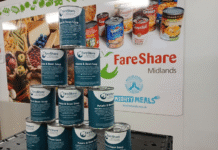Bionetix International is offering contemporary bioremediation solutions that battle numerous issues while having the health of the environment in mind. This is possible through biological treatments using different microorganisms and nutrients to stimulate contaminant biodegradation to promote cleaner environments.
Developments in ecology and environmental engineering have offered Bionetix new methods of producing microorganisms. They are claimed to be more efficient and degrade more complex chemicals along with higher volumes of waste materials. Bioaugmentation, bioremediation, bio-stimulation, and biological cleaning products answer a growing market demand to rehabilitate areas contaminated by pollutants, enhance the health of agriculture and livestock, and offer natural cleaning solutions. Rhamnolipids are biological surfactants, that improve soil quality, help fight plant pathogens, improve absorption of fertilizers and nutrients through roots. According to the company, Bionetix’s Organic Plus is suitable to be incorporated into nutrient solutions for hydroponic plants and vegetables and as a seed soak or dip as well. It contains high concentrations of humic and fulvic acids, rhamnolipids, marine plants, and micronutrients. For crops, humic and fulvic acids are chelators. They combine minerals to make them into organic compounds that can be ingested by plants more efficiently. They also enable the soil to hold more water and can increase the water infiltration of the soil.
This results in the following benefits:
• Increases crop yield
• Enhances seed germination, root formation, and microbial activity
• Improves soil fertility
• Promotes plant nutrient uptake
• Deactivates toxic chemicals
• Suppresses disease
• Chelates and colloidalizes fertilizers (to promote better nutrient uptake)


The East Hokkaido region is known to have the highest volume of potato production in Japan. Unfortunately, a potato farmer in the area was experiencing a high rate of potato scab infection in his agricultural fields. Before the 2019 season, this infection rate had reached approximately 85% in two fields that measured about 65 hectares (160.6 acres) total. An approximately 35hectare (86 acre) section of these fields was set apart as test area no 1 to evaluate the efficacy of Organic Plus RH during the 2019 growing season. The product was diluted in water and sprayed on the soil during sowing time in the spring. After treatment with Organic Plus RH, potato scab was eliminated in test area no 1. This is a result of the synergistic action of the rhamnolipids and other naturally derived ingredients in Organic Plus that efficiently enable control of potato scab through natural mechanisms.
IndiFoodBev — authentic, impactful and influential
An English-language food and beverage processing and packaging industry B2B platform in print and web, IndiFoodBev is in its third year of publication. It is said that the Indian food and beverage industries represent approximately US$ 900 billion in revenues which implies more than 20% of the country’s GDP. Eliminating the wastage on the farmside can help to deliver more protein to a higher number of the population apart from generating sizable exports. The savings in soil, seeds, water, fertilizer, energy and ultimately food and nutrition could be the most immense contribution that country is poised to make to the moderation of climate change.
To improve your marketing and grow sales to the food and beverage processing and packaging industry, talk to us. Our research and consulting company IppStar [www.ippstar.org] can assess your potential and addressable markets in light of the competition. We can discuss marketing, communication, and sales strategies for market entry and growth.
Suppliers and service providers with a strategy and budget for targeted marketing can discuss using our hybrid print, web, video, and social media channels to create brand recognition linked to market relevance. Our technical writers are ready to meet you and your customers for content.
The second largest producer of fruit and vegetables in the world is continuously expanding processing capacities and delivery systems with appropriate innovative technologies. We cover product and consumer trends, nutrition, processing, research, equipment and packaging from farm to thali. Get our 2025 media kit and recalibrate your role in this dynamic market. Enhance your visibility and relevance to existing markets and turn potential customers into conversations. Ask for a sample copy of our bi-monthly in print or our weekly IndiFoodBev eZine each Wednesday.
For editorial info@ippgroup.in — for advertisement ads1@ippgroup.in and for subscriptions subscription@ippgroup.in
Naresh Khanna – 10 February 2025
Subscribe Now











